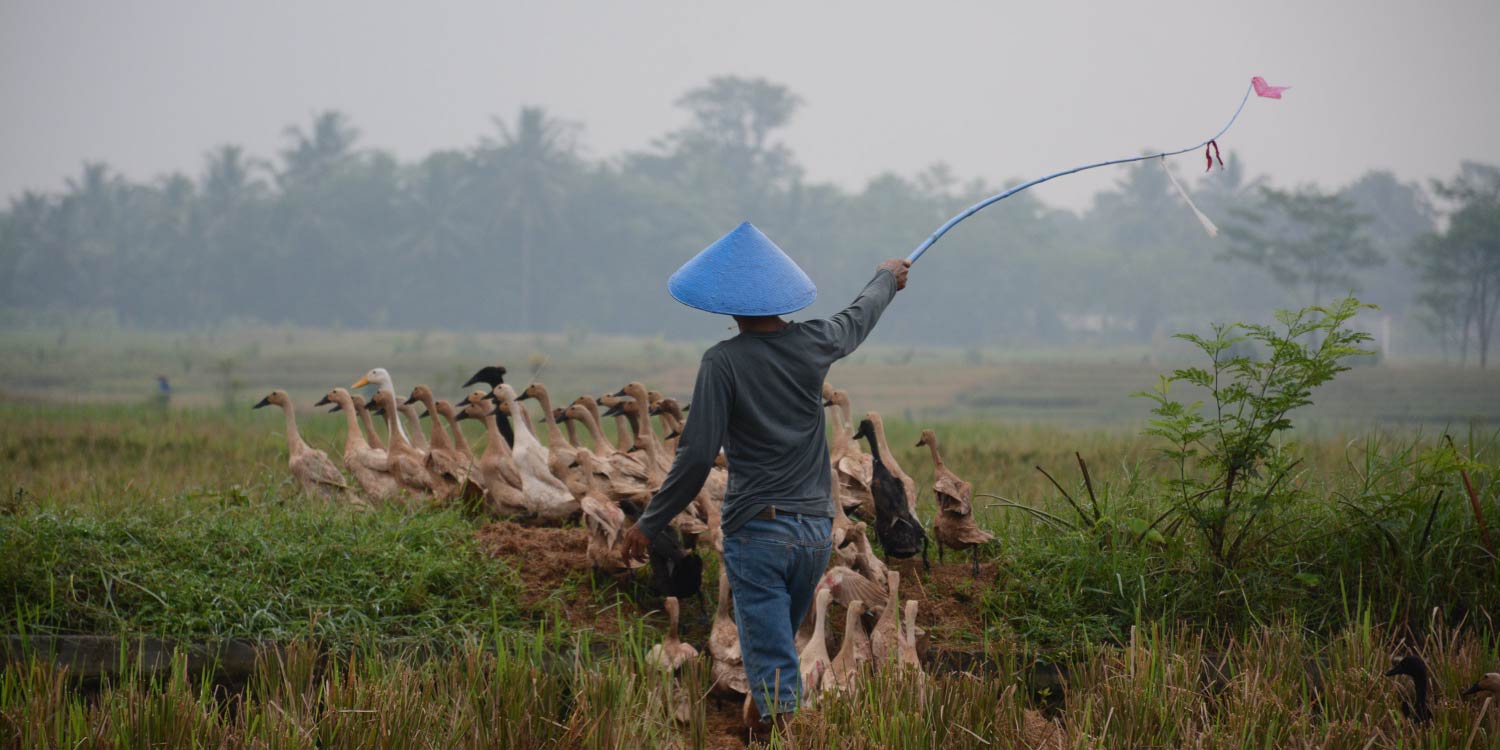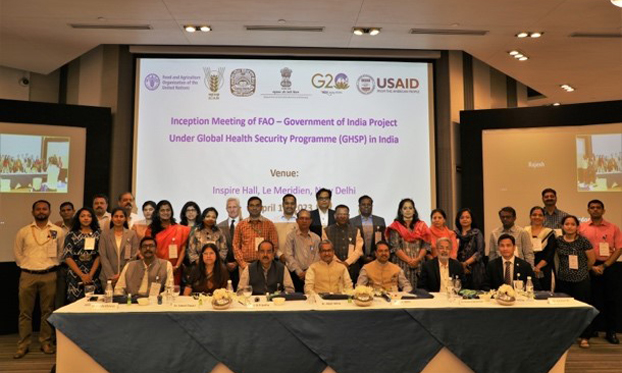
Edition: 10 to 14 April 2023
PARTNERSHIP
 ©FAO/Dipesh Solanki | INDIA India launches Global Health Security Program |
ANTIMICROBIAL RESISTANCE (AMR)
 ©fao/JAMES | ASIA AND THE PACIFIC REGION AMR social media contest winners announced |
-on-dairy-farms.jpg?sfvrsn=e937ce6c_1) ©fao/Gunawan Utomo | INDONESIA Survey training for enumerators on antimicrobial use (AMU) on dairy farms Under the antimicrobial stewardship programme, FAO and the Indonesian Ministry of Agriculture (MoA) held a series of activities from 10 to 14 April 2023 to commence interventions to control AMR in the dairy industry, targeting dairy cattle farms in Malang, East Java. The activities include focus group discussions with the provincial and district governments to discuss the detailed plan for conducting AMU and infection, prevention, and control (IPC) surveys in the dairy cattle sector. Five enumerators, which consisted of animal health officers, were trained to conduct the surveys. A comprehensive AMU and IPC survey is critical for effective policymaking, research and implementation of AMR control programmes in the dairy industry because it can provide valuable information on the patterns of AMU in dairy farming, farmers' knowledge and attitudes concerning AMU and the effectiveness of biosecurity measures in controlling bacterial infections. The actual survey will take place in May. |
ONE HEALTH
 ©FAO/YIN MYO AYE | INDONESIA AND ASIA AND THE PACIFIC REGION Provincial bridging workshop for rabies in Bali FAO, WHO, WOAH, Global Alliance for Rabies Control (GARC), Friedrich-Loeffler-Institut (FLI) and German Epidemic Preparedness Team supported the Government of Indonesia in conducting a provincial bridging workshop for rabies in Bali from 12 to 14 April 2023. The methodology of the International Health Regulations and Performance of Veterinary Services (IHR-PVS) National Bridging Workshop (NBW) was adapted to facilitate inter-sectoral collaboration for rabies prevention and control activities. The workshop discussed the current rabies status in Bali, strategies for rabies control, and identified cross-sectoral activities to achieve the “Zero by 2030” global rabies eradication target. The workshop produced several recommendations and follow-ups, including forming a coordinating team for the prevention and control of zoonoses and new infectious diseases in Bali, developing a thematic program for dealing with rabies, and adopting the workshop results in the form of a joint roadmap for rabies elimination as a cross-sectoral work plan. Indonesia is the second country that piloted the NBW on rabies, following Ghana.
|
